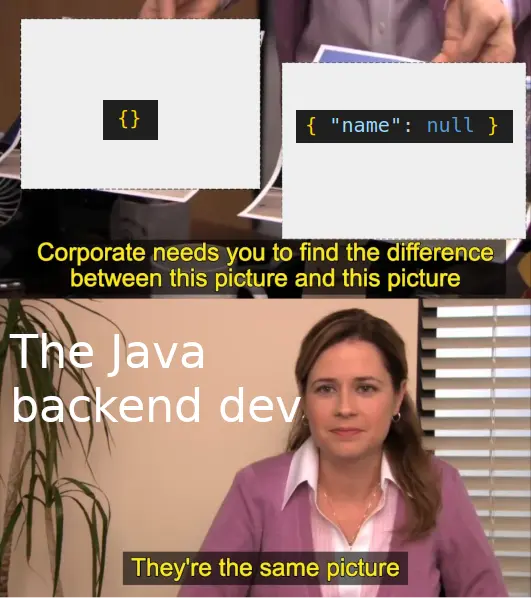this post was submitted on 30 Jun 2024
283 points (94.9% liked)
Programmer Humor
19480 readers
1488 users here now
Welcome to Programmer Humor!
This is a place where you can post jokes, memes, humor, etc. related to programming!
For sharing awful code theres also Programming Horror.
Rules
- Keep content in english
- No advertisements
- Posts must be related to programming or programmer topics
founded 1 year ago
MODERATORS
you are viewing a single comment's thread
view the rest of the comments
view the rest of the comments

If you’re branching logic due to the existence or non-existence of a field rather than the value of a field (or treating undefined different from null), I’m going to say you’re the one doing something wrong, not the Java dev.
These two things SHOULD be treated the same by anybody in most cases, with the possible exception of rejecting the later due to schema mismatch (i.e. when a “name” field should never be defined, regardless of the value).
Ya, having null semantics is one thing, but having different null and absent/undefined semantics just seems like a bad idea.
Not really, if absent means "no change", present means "update" and null means "delete" the three values are perfectly well defined.
For what it's worth, Amazon and Microsoft do it like this in their IoT offerings.
it does feel ambiguous though as even what you outlined misses a 4th case. if null means delete, how do I update it to set the field to null?